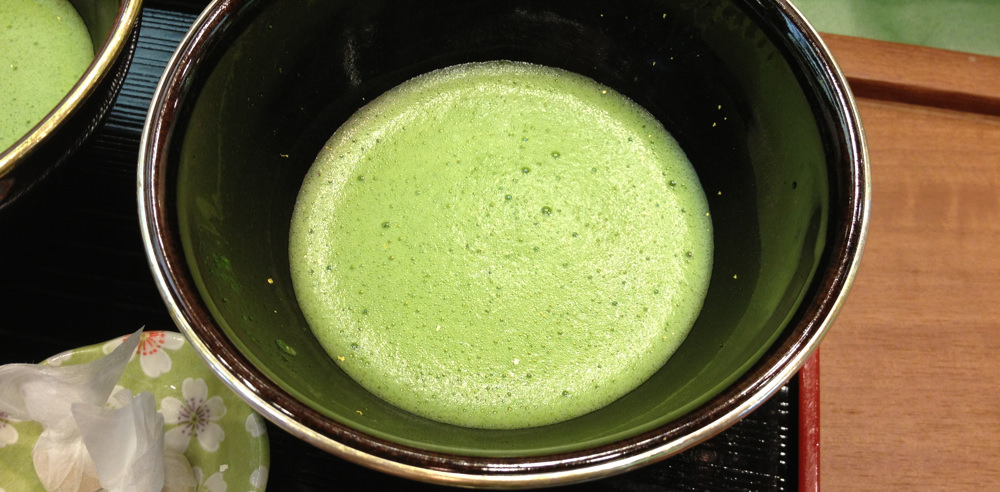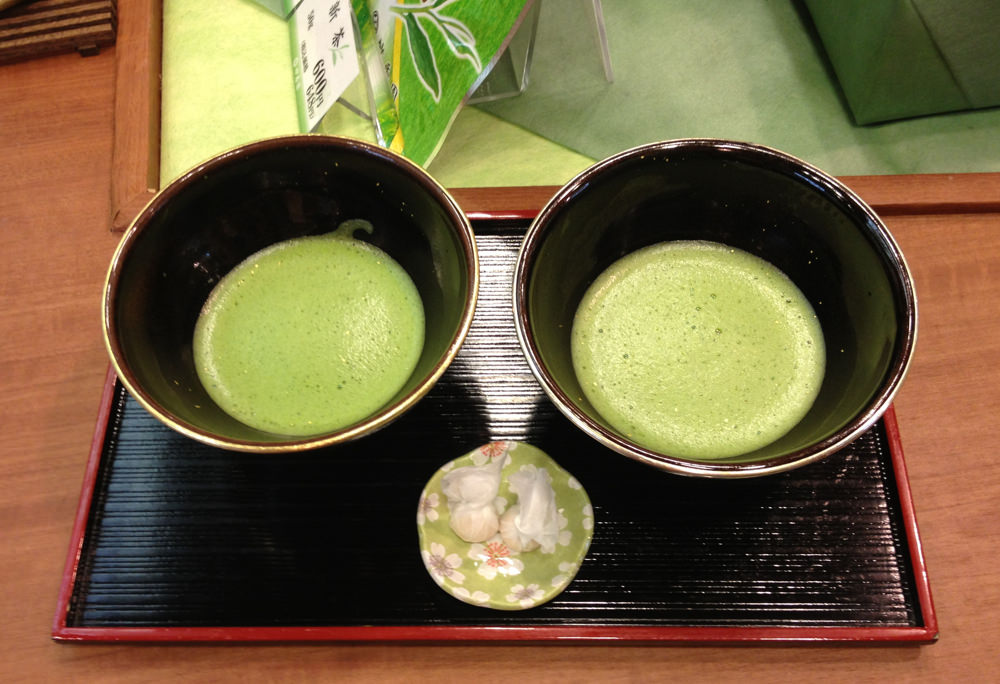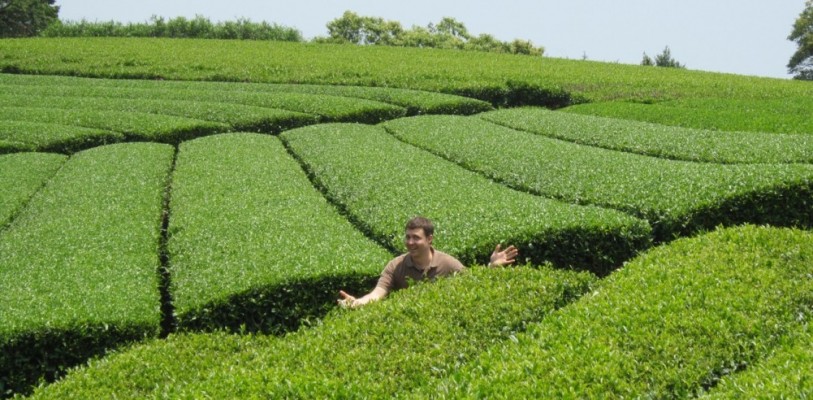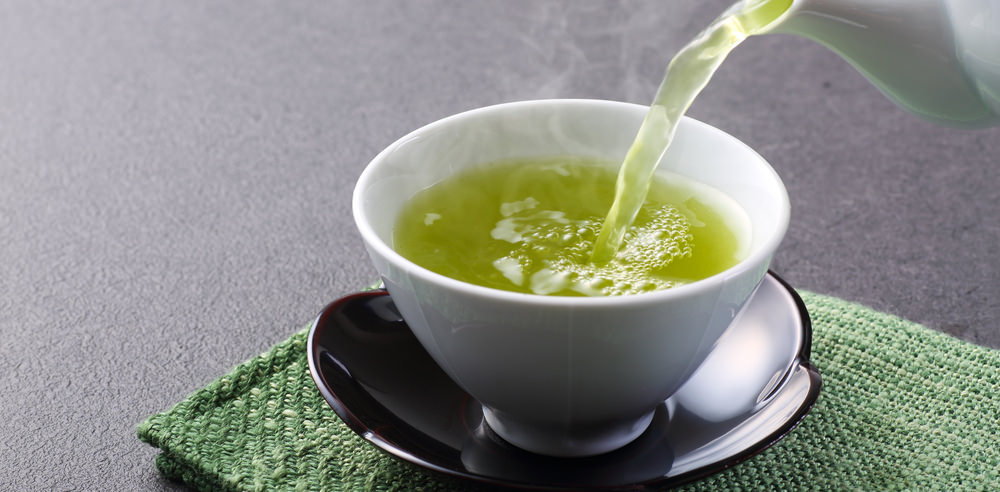
Have you tried matcha, the most popular green tea drink in America? Matcha is the new trendy beverage because of its supposedly high level of antioxidants. But, do you know how much EGCG and other catechins you’re getting from your favorite brand?
Most likely you don’t because there is very little research so far about matcha. To date, green tea studies have focused on brewed green tea, extracts, and EGCG, but nothing specifically about matcha.
In Japan, tea connoisseurs claim that matcha has three times the amount of antioxidants as regularly brewed green tea. This is because steeping tea leaves can only extract around 1/3 of the catechins. The remaining 2/3 stays with the leaf.
Matcha, on the other hand, is made from 100% of the tea leaf. High quality tencha tea leaves are de-stemmed, de-veined and ground into a fine powder. The end product is a beautifully bright green powder that you mix with hot water to make tea.
 Complimentary Matcha at a Tea Shop in Japan
Complimentary Matcha at a Tea Shop in Japan
Consumer Labs recently conducted tests of several matcha powders to give us an idea of the actual amount of EGCG, total catechins, and caffeine available (see table).
The amounts listed in the table are based on 1 level teaspoon of matcha in hot water (175° F). According to their tests, matcha has about 80-110 mg of EGCG, 190-290 mg of total catechins, and 50-70 mg of caffeine per serving.
To compare, Consumer Labs’ previous tests for green teabags ranged from 25-70 mg of EGCG, 60-190 mg of total catechins, and 20-40 mg of caffeine per serving.
| Brand of Matcha | EGCG | Total Catechin | Caffeine |
|
109 |
414 |
72 |
|
|
94 |
191 |
53 |
|
|
82 |
294 |
56 |
The amount of caffeine is higher than most other types of green teas, but it is still less than a brewed coffee. To compare, a tall coffee from Starbucks has 260 mg of caffeine!
It’s important to be aware that matcha from areas of high pollution may contain contaminants such as heavy metals. Green tea plants readily absorb lead from environmental pollution and car exhaust.
It is reassuring to know that Consumer Labs tested for lead, arsenic, cadmium, and pesticides and none of the three products exceeded the limits.
The products tested, however, were all organic and from Japan. It is not safe to assume that all matcha is free from contaminants.
This article contains affiliate links. Green Tea Guide receives a small commission for purchases made through these links. Your purchases support our effort to raise awareness about green tea. Thank you!
ConsumerLab.com. (2015). Product review of green tea supplements, drinks, brewable teas, and matcha. Retrieved from https://www.consumerlab.com/reviews/Green_Tea_Review_Matcha_Supplements_and_Bottled/Green_Tea/


